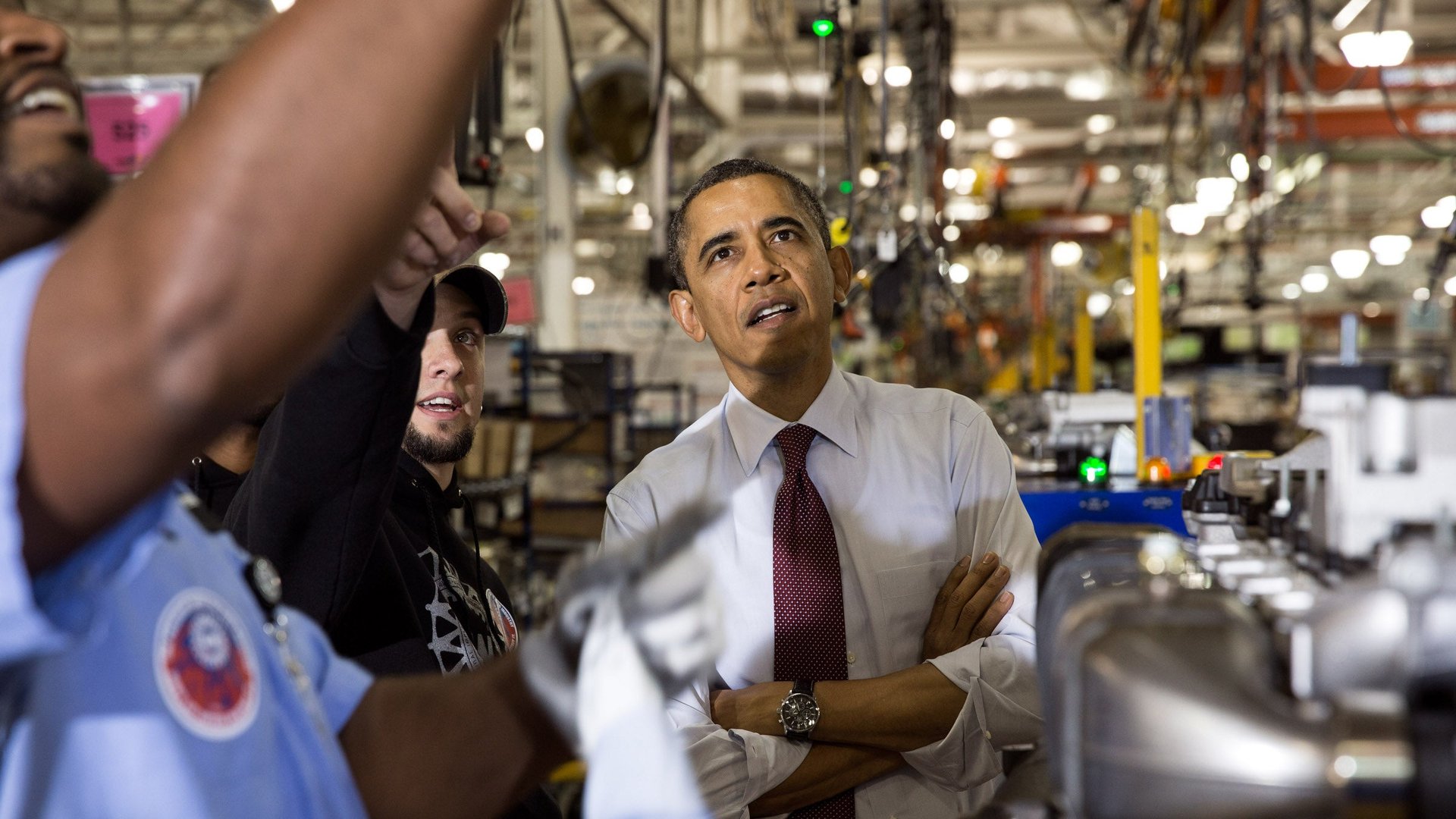The two numbers that explain Obama’s economic policy tour this week
A day after pollsters reported that 54% of Americans think the US is still in a recession, a good four years out from its official end, US President Barack Obama came out and told them: I know how you feel.


A day after pollsters reported that 54% of Americans think the US is still in a recession, a good four years out from its official end, US President Barack Obama came out and told them: I know how you feel.
In a speech kicking off a national tour to lay out an economic agenda for the rest of his term, Obama trumpeted the job growth since the recovery began in 2009, but acknowledged that inequality is growing, mobility is down and the middle class is being squeezed. It’s a restatement of his campaign in 2008, before the financial crisis moved those worries to the back-burner, leaving his administration to focus on bailing out banks, economic stimulus and financial regulation, not long-term growth.
Are the ideas new? Not really. Obama still wants to boosting high-skill manufacturing and renewable energy jobs, invest in infrastructure upgrades like modern ports, energy grids and bridges, fix the student loan mess and upgrade worker re-training programs. He mentioned raising the minimum wage, more home re-financing opportunities, plumped for his health care reform law, lobbied for the immigration law wending its way through Congress, and asked Congress to support new tax benefits to help middle-income Americans save for retirement.
Many of these ideas have some merit, but making them a reality is another thing entirely. A divided Congress is bogged down in immigration reform, with this fall’s fast-approaching fiscal deadlines: the need to agree on spending to prevent the government from shutting down on Oct. 1, and the need to lift the limit on US borrowing sometime in November. Needless to say, the parties are far apart, and even Republicans are divided on how to approach the situation, and expectations for dealing with the situation efficiently aren’t high. There’s just not that much room for other legislation,
That doesn’t rob Obama of the responsibility to push his agenda, and he spent a good chunk of his speech badgering Republicans to take more responsibility for the consequences of their decisions to focus on opposition rather than compromise. That hasn’t worked in the past, either. After all, this is a Congress that has passed exactly 15 bills this year; none of which are new legislation, and six of which merely fixed past mistakes.
So if many Americans think the recession is still on, and Obama can’t do much about it, why the speech? That brings us to the other important number to know: Obama’s approval numbers are near a record low (pdf), with only 45% of Americans approving of his work as president. That limits his leverage even more, hence the hope that a little barnstorming might make Congress more amicable to deal-making.